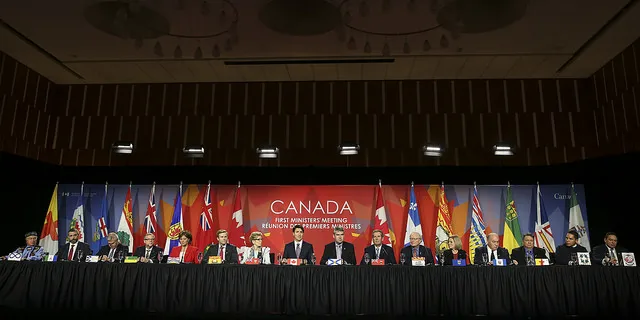OTTAWA — While some progress towards implementation of the Pan-Canadian Framework on Clean Growth and Climate Change (PCF) has occurred in the last year, sustained action in 2018 is critical to ensure Canada’s clean growth goals don’t slip out of reach. The federal government, together with the provinces and territories, must accelerate implementation efforts according to a report released today by the Pembina Institute and partners, “State of the Framework: Tracking implementation of the Pan-Canadian Framework on Clean Growth and Climate Change”.
Last year, first ministers negotiated a historic climate policy framework that set Canada on a path to achieve its 2030 climate target. Today’s report evaluates progress towards implementation of individual measures within the plan, including carbon pricing, phase-out of coal-fired power, decarbonization of transportation, oil and gas regulation and promotion of energy efficiency in the built environment.
2018 is a year of mounting climate ambition: as Canada steps into its G7 presidency, and as the international community works to finalize the Paris Agreement rulebook, continued leadership from all orders of government in Canada is essential. The report points to different forms this leadership can take: extending the national carbon pricing benchmark past 2022, establishing long-term governance and accountability structures, or increasing efforts to promote zero emissions vehicles.
Quick facts
- The Pan-Canadian Framework on Clean Growth and Climate Change contains more than 50 new climate and clean growth measures
- Canada’s 2017 National Inventory Report shows that Canada’s emissions totaled 722 Mt in 2015—only 2 per cent below 2005 levels, and an increase of 18 per cent above 1990 levels
- Canada is currently not on track to achieve its 2030 emissions reduction target, and will almost certainly miss its 2020 target
- Nearly 50 per cent of Canada’s emissions come from two sectors: upstream oil and gas and transportation
Quotes
“The pan-Canadian climate plan was a critical turning point in Canada’s response to climate change. Federal, provincial and territorial governments now need to pick up the pace to ensure these hard-won policy measures are effectively implemented.”
— Erin Flanagan, federal policy director, Pembina Institute
“Canada continues to demonstrate important climate leadership in international forums. But tangible progress at home is key to further progress abroad. We look forward to continued federal, provincial and territorial efforts to raise ambition through 2018.”
— Bora Plumptre, federal policy analyst, Pembina Institute
[30]
Visit the Pembina Institute’s website to download a copy of State of the Framework: Tracking implementation of the Pan-Canadian Framework on Clean Growth and Climate Change.
Contact
Erin Flanagan
Program Director, Federal Policy
587-581-1701
Kelly O’Connor
Communications Lead
416-220-8804
Background
Blog: The Paris Agreement takes root in the real economy (November 2017)
Report: Using Equivalency Agreements to Advance Canadian Climate Policy (August 2017)
Report: Race to the Front: Tracking pan-Canadian climate progress and where we go from here (September 2016)




